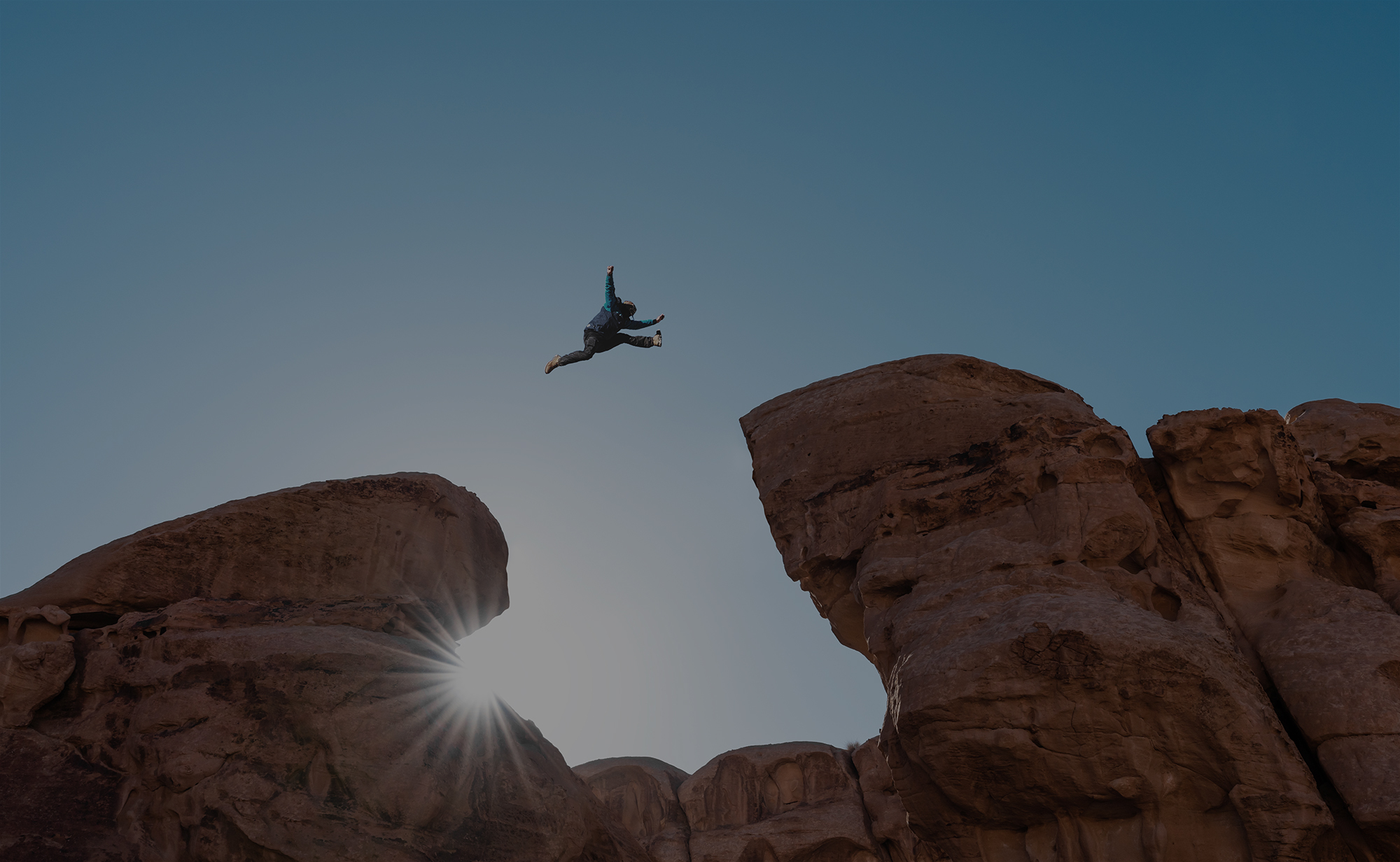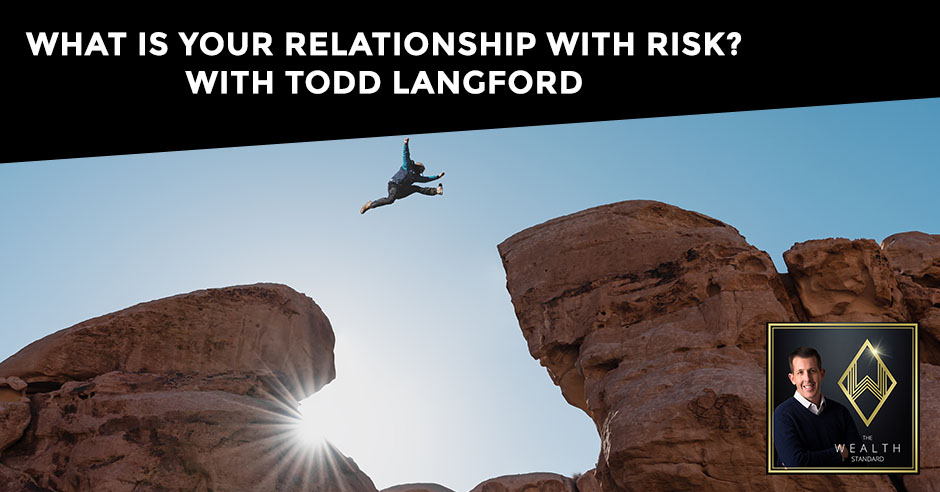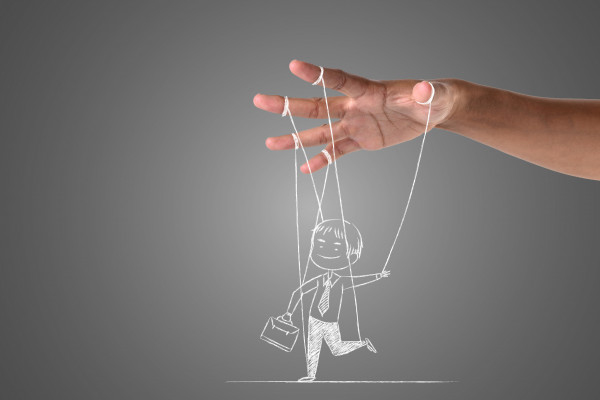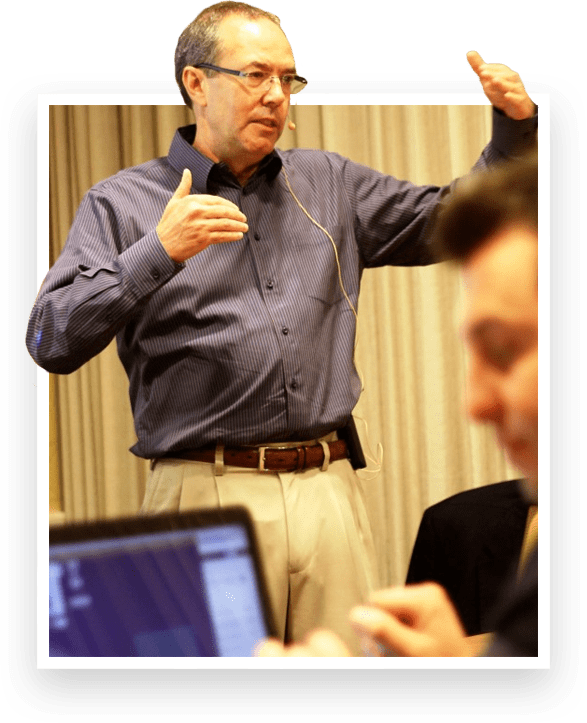
Podcast: Play in new window | Download

Tony Robbins once said, “The quality of your life is in direct proportion to the amount of uncertainty that you can comfortably live with.” However, none of us start out with a healthy relationship with risk. As humans we have fear around risk – a fear of failing, a fear of getting exposed, or a fear of finding yourself to be not good enough, you name it. But what exactly are we fearful about? Is that fear justified when you get down to the facts? Join in as Patrick Donohoe goes back to a segment of his interview with Todd Langford, where they get into the idea of risk, how to control it, how to influence it. As you listen through the segment, think about where you can take more calculated risks in your life, where you understand the stakes and what you stand to gain in the end.
—
Watch the episode here:
Listen to the podcast here:
What Is Your Relationship With Risk? With Todd Langford
Our topic is risk. What is your relationship to risk like? Have you ever taken a risk and lost? Have you ever taken a risk and gained? Risk aligns well with the statement from Tony Robbins, that the quality of your life is in direct proportion to the amount of uncertainty that you can comfortably live with. At the same time, we have fear around risk. Todd and I get into the idea of risk, how to control it, how to influence it. You’ll enjoy this segment of the conversation. There’s a lot of risk being taken right now, risk with personal savings, within investments, business and monetary policy of our government in a very interesting time where we’re making these pretty big bets. I look at things we can control and influence. Those things are typically outside of ourselves. At the same time, I believe that when we understand our relationship with risk at a deeper level, then we can direct this risk energy in the right areas, not to take away from the relevance of cryptocurrency or blockchain technology, but taking a risk betting everything, a future and personal savings.
I believe that there is no control there. Not even much influence unless you’re Elon Musk and can put a $100 million into Bitcoin. The purpose of me bringing this up is I believe that you can take this risk energy and channel it toward the things that create a meaningful life. The things that Tony Robbins alluded to the quality of life, improving the quality of life, the meaningfulness of life. How do you redirect the risk? I look at, ultimately, the most important things people strive to achieve. It usually revolves around relationships, family and profession. My question to you and what I want you to think about through this conversation with Todd and me is where can you take more calculated risks where you understand the stakes and you also understand the gains? The gains are a multiple of the risk that you put on the table. It’s that whole idea of asymmetric risk reward. What can you do in your relationships? Can you apologize? That’s risky. Can you ask somebody out? Can you ask someone to marry you? Can you be open with a friend? Can you speak your mind, speak your truth? It’s risky, but is the reward worth the risk?
What about your profession? What about your business? What risks can you take that you can help more people where you can take that next step, where you can leave the comfort of a job that you despise, but it pays well. Go and do something on your own or work with a group whose values and mission align better with who you are and what you are about? Risks are misunderstood. Risk is a good thing. If you think about it, you can make it so that risk has no loss. There’s always a lesson. Case in point, you ask somebody out and they say no, wrong person, which gets you closer to the right person. Asking somebody to marry you, they may say no. Either you can keep being persistent or you know that you need to move on. That’s a positive thing. It depends on what you focus on. Risk in business is always necessary to stay relevant, to stay agile and to always keep a pulse on the needs of your clients, your employer, so that you can continue to create even more value. Guys, thanks for supporting the show. I hope you enjoy this short segment with my dear friend, Todd Langford.
—
It’s the reason we can’t shut our minds down in whatever it is we’re doing. I’m not saying don’t bring in the experts to guide you, but there’s a responsibility on your part to take that a little bit further and say, “If this happens, how do I react to that? If things don’t map out exactly like this professional has said it’s going to go, it’s going to be on me to make the decision and make the adjustment. I’ve got to keep my mind open. I’ve got to be able to understand at some level what it is I’m being told and not take it hook line and sinker.” Unfortunately, we’re going to be the ones that are responsible for what the results are. If we shut our mind down, the only thing we can do, which is where the society has gotten at some level and it’s the blame game, it’s not my fault. It’s because somebody else told me this, or it’s because I read this or it’s because I did that. If somebody else’s information, you are ultimately responsible for it. You have to take the effort and time. Keep your mind turned on.
Risk in business is always necessary to stay relevant, keep a pulse on the needs of your clients or employer, and continue to create value. Click To TweetI’d love to hear your thoughts on this. When you experience fear, it ultimately comes from the nature of risk. There’s an unknown. In large part, the future is what’s unknown. There’s a part of us that thrives to establish certainty or safety. It’s one of those natural instincts. Invariably, what happens is when you place the control or influence of the future on somebody else, it creates an amplified amount of risk and subsequently, more fear, because it’s not you that has come to conclusion. It is somebody else that has come to the conclusion and you are ultimately leveraging them because you don’t have responsibility or skin in the game to the discovery of the assumption by which you’re acting on. The fear is not going to go away. It’s going to go up.
The thing about control, we’ve talked about that in the past. We want to push in that direction. I like your wording of influence. That’s probably a better word we’ll get into. We’re never completely in control. The idea is that the level of control that we can secure, that’s probably indirectly proportional to the amount of anxiety we have. That’s what the issue is. As soon as we start to give that control up willingly to somebody else, it’s got to raise our level of anxiety because we’re in a period of hope. Hope it comes out instead of being able to direct the course.
Going back to the simple example of an airline pilot, they don’t know what the environment is going to be like, but they have the instruments and the training. As the environment changes, they know what to do. Technology response to it just as much, if not more, than the pilot. This is the ability to influence. You can’t control the environment. Environment is going to be the environment. People are going to treat you a certain way. You’re going to wake up with energy one day. You’re going to wake up with not much energy one day. You’re going to wake up and something happens to government, laws, your employer and to the clients you have if you’re self-employed. There are all sorts of things that are going to happen that are outside of your control.
That’s where you establish a degree of certainty around influence so that when that environment changes, that is when you are able to respond. There’s a preparedness there. That’s what mitigates anxiety and fear. When it comes to the math side of things, mainly speaking to financial math, people these days are concerned about money and their future. What’s the environment that they’re making conclusions about what could go wrong in the future based on? How would you describe that environment?
Part of it is the unknown. That’s where a lot of that fear comes from. You hear people rattling stuff around about, “What happens if the dollar disappears? What happens if this or that?” Bad news, unfortunately, is exciting for a lot of people. People want to be the first ones to tell whatever different news it is in some form and add their bias to that, about how they think it’s going to happen to drive emotion. The bottom line is we all make decisions based on emotion if we make decisions based on our beliefs, not necessarily on the truth.

Relationship With Risk: We’re never completely in control but the level of control that we can secure is indirectly proportional to the amount of anxiety we have.
That becomes a discipline or a conscious effort that we have to separate our beliefs, the hype and our natural tendency to go to the fear, to step back and be able to say, “What is the truth? What is it that I have influence over? What can I change in this scenario to fix that?” It goes back to what you were saying about the pilots, it’s to have those tools in place, to have the knowledge. That’s one of the biggest tools we have, is using our brain. That’s one of the things that’s easiest to shut down and let somebody else fill that void or that difference, is turning your brain over to somebody else because they’re a professional.
When you get into a crunch, what do you do? You’ve given up your best tool, that’s your brain, to be able to think through what’s going on. Knowing that you have that tool is a key piece. There was the guy that I was listening to, Sean McDowell, Josh McDowell’s son. One of the things he talked about when he was teaching kids was the idea of knowing something versus knowing you know something. There’s a key, huge difference in those two. What he talked about was he had students that knew the answers, but they might fail a test and then he had students that gave a little bit more effort to the point that they knew that they knew the answer. The difference is, in knowing the answer and writing the wrong thing down because you can talk yourself out of it versus knowing you know the answer. In life, that’s a big piece. When we know we know what we know, we’re invincible because we can rely on our knowledge to get us through an anxious time instead of reverting to the fear and talking ourselves out of what the real answer might be.
The environment right now is interesting because, number one, there’s so much information, perspective and opinion out there. The degree of understanding when it comes to math and science is, in large part, instituted by a system that people don’t like. How many kids do you know that love going to school? If you don’t have a curiosity associated with learning, you’re going to be checking boxes and learning in order to pass a test as opposed to learning to have knowledge, which is more of the practical side of things. You have an interesting environment where life is pretty easy. Even someone in a less fortunate circumstance in the United States has likely access to healthcare, to shelter, to entertainment that kings of old didn’t have anything close to. Yet they’re still upset, frayed, unhappy, depressed, unsuccessful people.
The environment is evolving at a rapid pace where life is going to get easier. Transportation costs are going to come down. We already have entertainment in spades, but even more and better-quality entertainment. You’re also going to have energy costs and food costs come down. There are some revolutionary things on the horizon. The environment is changing to the point where science and mathematical truths have been discovered that has designed this environment for people that don’t necessarily understand the underlying trues and math associated with it. When you think about that, Todd, what do you think is going to be the result of human beings and their experience of life?
Important Links:
- Todd Langford – LinkedIn
About Todd Langford
 Todd Langford is the Founder & CEO of Truth Concepts, Partners 4 Prosperity, and Prosperity Economics Advisors.
Todd Langford is the Founder & CEO of Truth Concepts, Partners 4 Prosperity, and Prosperity Economics Advisors.
Love the show? Subscribe, rate, review, and share!
















